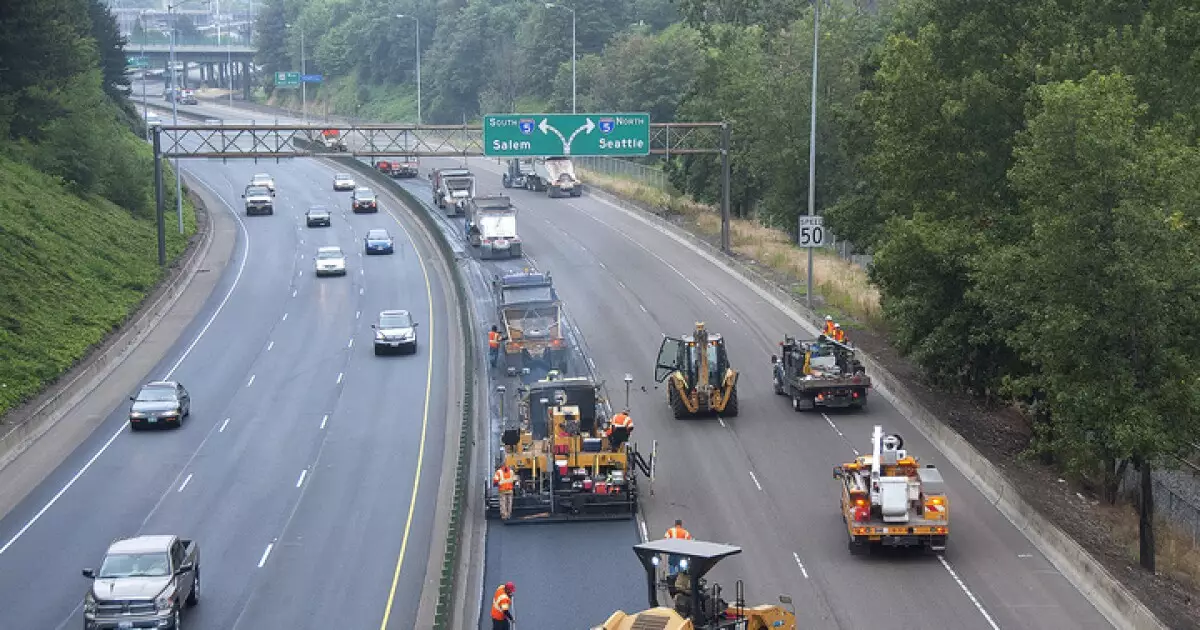The recent passage of House Bill 2025 by the Oregon state House legislative committee is a glaring example of government overreach cloaked in the guise of infrastructure improvement. The proposed $14.6 billion tax increase over the next decade is not just a minor fiscal adjustment; it’s a massive financial burden that threatens to destabilize the state’s economy amidst soaring costs of living and a burgeoning middle-class exodus. This bill raises an alarm—not just among those who believe in responsible fiscal governance, but also among the average Oregonians who are already grappling with the weight of increased taxation.
The Rationale Behind the Bill: An Overhaul or a Fiasco?
Proponents of House Bill 2025 tout it as a transformative investment aimed at revitalizing Oregon’s dwindling infrastructure. Legislators like Sen. Chris Gorsek passionately argue that failing roads and bridges endanger public safety and must be addressed with urgency. However, a careful analysis of the situation reveals that mere repairs do not justify the staggering price tag. While it is undeniable that many public infrastructures are in dire need of repair, the question must be asked: is this the most effective means of addressing the issue?
The official narrative insists that substantial tax hikes are necessary to address a series of longstanding infrastructure deficiencies, but many residents feel differently. A poll suggesting that 61% of Oregonians oppose such measures points to a glaring disconnect between legislators and their constituents. The argument for taxing the public to fix potholes misunderstands the broader economic landscape; rather than offering a long-term solution, this approach risks perpetuating a cycle of dependency on government funds, whilst ignoring the very real needs of the citizenry.
Democratic Maneuvering: Playing the Political Game
Behind the scenes, political maneuvering has played a significant role in advancing this bill. Reports emerged that Senate President Rob Wagner removed dissenting voices within his own party to ensure the measure’s success—an alarming tactic that showcases the lengths to which leaders may go to achieve their objectives. This strategic sidelining of colleagues forces one to consider the ethical implications of such actions. Are we witnessing a government that prioritizes its agenda over accountability and transparency? It’s an unsettling prospect.
The exchanges being made in the corridors of Oregon politics also highlight deeper ideological divides. With Republicans critiquing the proposal as a “scheme,” it appears that merely tweaking the bill won’t suffice—they are calling for structural alternatives that do not rely on additional taxpayer burden. Forcing a tax burden on residents under the guise of improvement risks alienating those who are already skeptical of their government.
Community Impact: The Personal Cost of Bad Policy
This bill represents a crisis of confidence for many Oregonians. Individuals already struggling with the rising cost of living will now face the bleak consequences of unprecedented tax hikes. As Rep. Shelly Boshart Davis so accurately noted, people do not want to pay more for services that should be provided at existing levels. Government inefficiency has long been an issue; adding more funds to a failing structure without addressing the underlying problems is akin to throwing good money after bad.
Resistance from constituents indicates a broader mood of disgruntlement with a government that seems to have lost touch with its citizens. For many, the thought of higher taxes conjures feelings of helplessness in the face of runaway bureaucracy. A Bill proposing to shore up transportation funding should be met with enthusiasm, yet it is instead met with skepticism. This signifies a widespread eroding of trust, which is difficult to rebuild.
A Future Haunted by Fiscal Mismanagement
The Oregon transportation bill represents not just a fiscal misstep but a potential long-term catastrophe for the state. Seeking to stabilize aging infrastructure at the expense of Oregonians’ wallets is an unwise gamble. The prevailing sentiment among the populace demands accountability, transparency, and efficiency—qualities that seem to be increasingly at odds with the bill’s passage. As leaders attempt to push through this massive tax scheme, they risk not only public backlash but also their state’s economic health in years to come.

